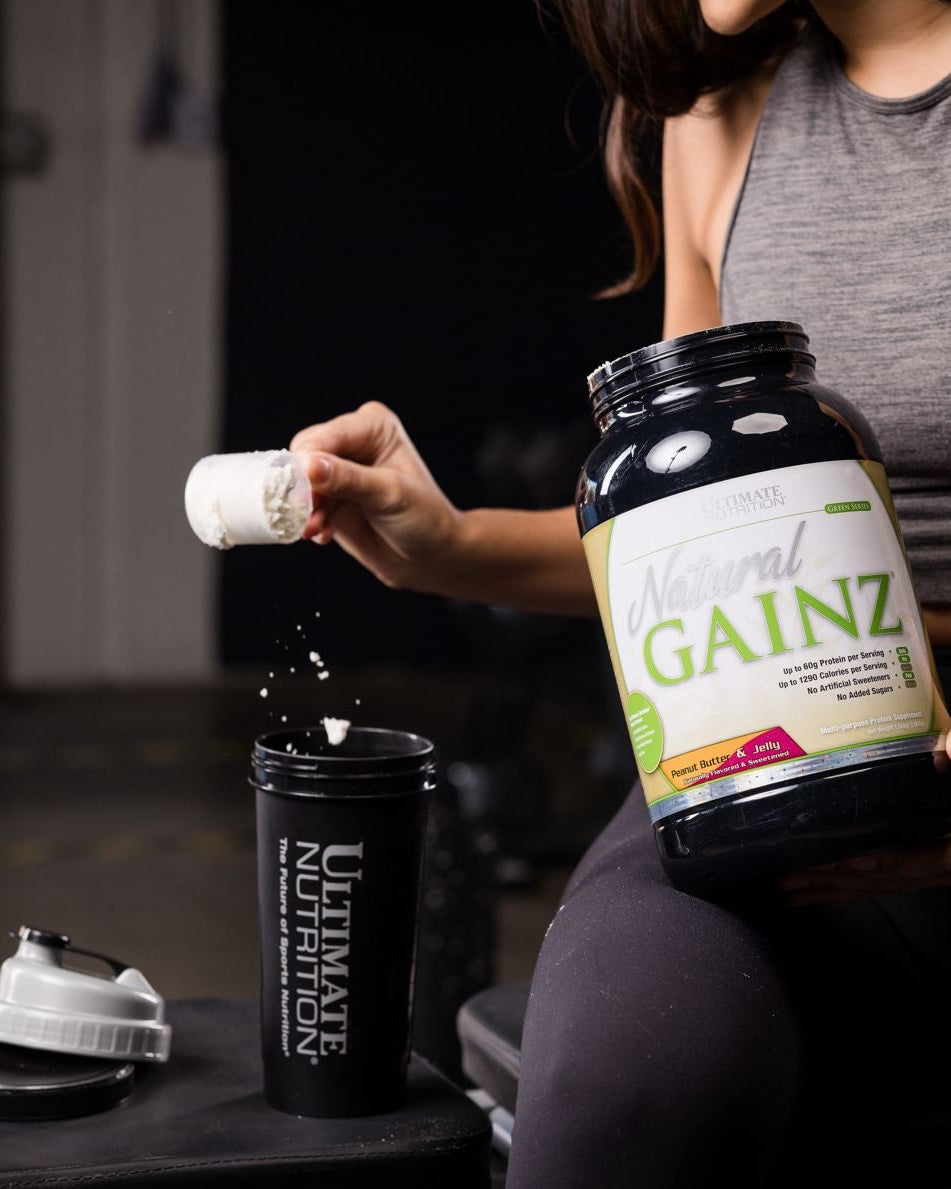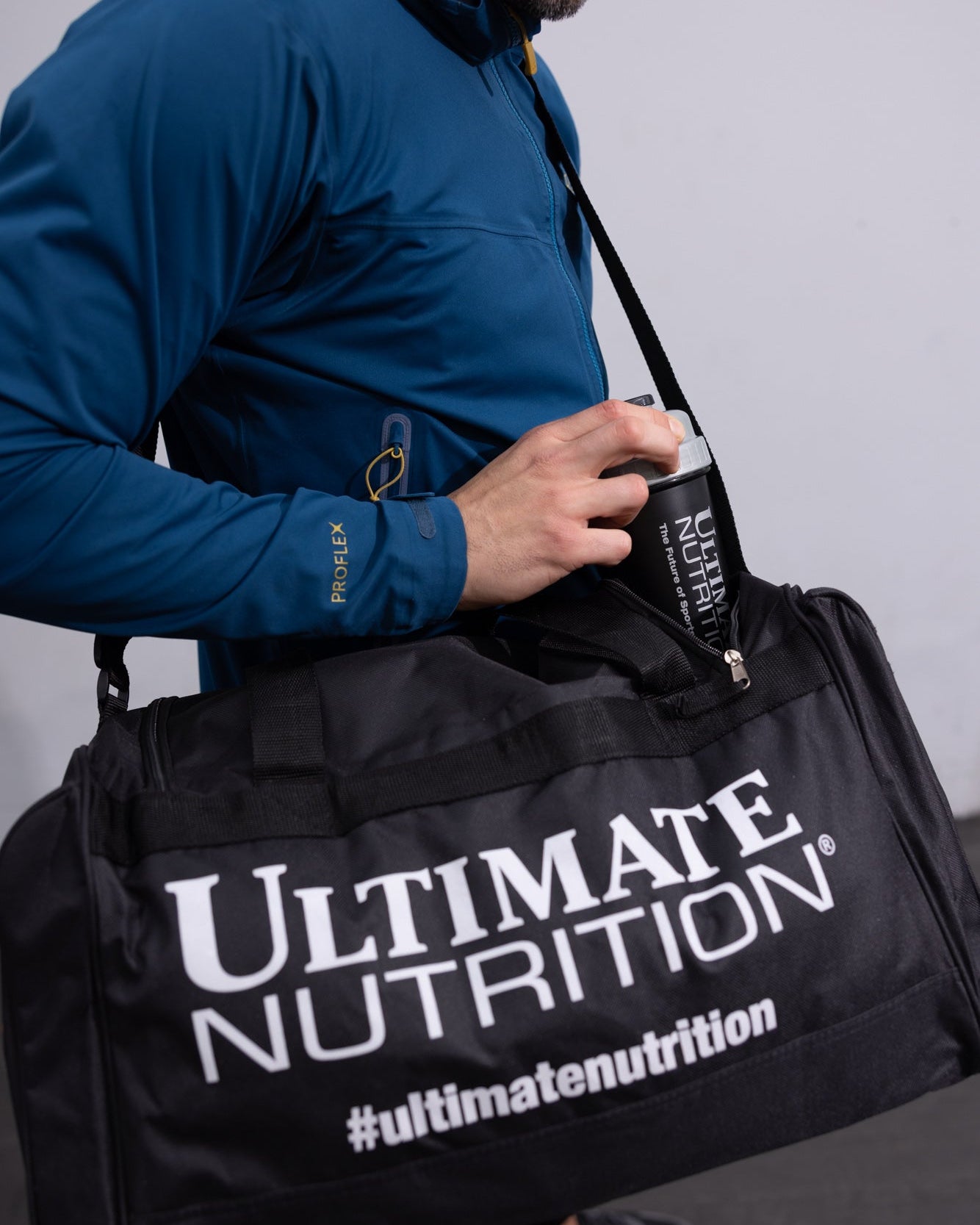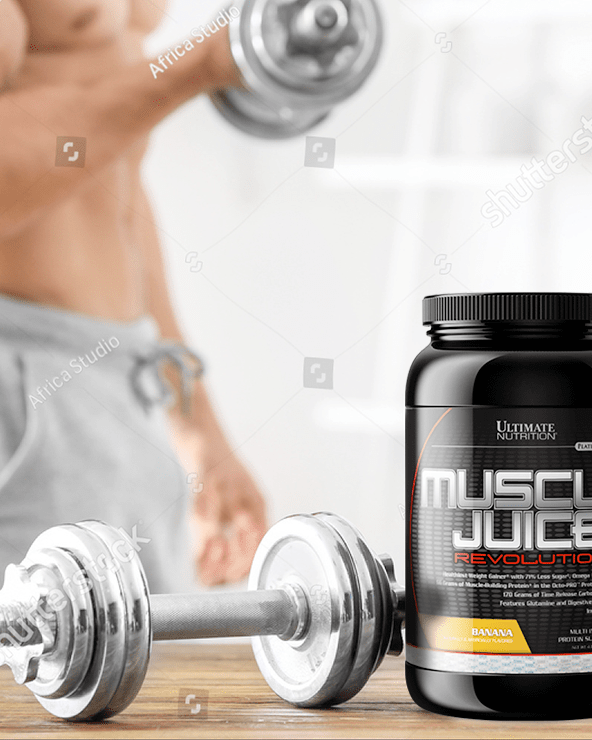Embarking on a bodybuilding journey can be both exciting and overwhelming, especially for beginners.
With the wealth of information available online, it's easy to fall victim to misconceptions that can hinder your progress. In this article, we're here to set the record straight by debunking some common bodybuilding myths that newbies should ignore.
Let's separate fact from fiction and ensure you start your fitness journey on the right foot.
MYTH: CARDIO IS THE KEY TO BUILDING MUSCLE
Contrary to common belief, muscle growth isn't primarily driven by cardio.
While cardio has its health benefits, excessive focus on it can hinder muscle gains. Instead, prioritize a structured strength training routine that targets different muscle sets.
Compound movements like squats, deadlifts, and bench presses engage multiple muscles, promoting effective muscle development. Gradually increasing resistance during these exercises stimulates muscle growth more effectively than extensive cardio.
For those aiming to maximize muscle gains, a well-rounded approach with substantial emphasis on strategic strength training proves more fruitful than fixating solely on cardiovascular activities.
MYTH: YOU NEED TO LIFT HEAVY WEIGHTS EVERY TIME
While lifting heavy weights is crucial for strength building, it's not essential to pursue maximum weight in every session.
Integrating a range of weights and repetition patterns within your strength training routine is essential for comprehensive muscle growth and preventing performance plateaus. Varying the intensity challenges muscles in diverse ways, promoting neuromuscular adaptations, engaging different energy systems, and facilitating overall strength and endurance development.
This adaptable approach disrupts the body's tendency to plateau and ensures consistent progress over time.
MYTH: SPOT REDUCTION IS POSSIBLE
While lifting heavy weights is essential for building strength, a rigid focus on maximal weights in every session can be counterproductive.
Incorporating variations in weight and rep ranges within your strength training routine introduces unpredictability and diverse challenges for muscle growth. This approach stimulates different muscle fibers, motor units, and energy systems, leading to a more well-rounded development of strength and endurance.
Moreover, these variations help prevent performance plateaus by constantly challenging the body and promoting ongoing adaptations. Balancing heavy lifting with a range of intensities fosters consistent progress and a comprehensive advancement in overall fitness. (Source)
MYTH: YOU MUST ALWAYS FEEL SORE AFTER EVERY WORKOUT
Experiencing post-workout soreness doesn't necessarily indicate the success of a workout; it's a result of muscle adaptation to new or intense stress.
Soreness alone isn't a reliable measure of progress, as consistent training and gradual progression matter more than extreme soreness.
While microtears in muscles lead to growth and strength gains, overemphasizing soreness can lead to overtraining and injury. (Source)
Focusing on a well-structured, consistent workout routine that gradually challenges the body is a more effective approach than solely gauging effectiveness based on the degree of soreness.
MYTH: NO PAIN, NO GAIN
While pushing your physical limits is integral to fitness progress, it's important to recognize that pain is not a reliable gauge of advancement.
Overexertion and improper form can lead to injuries, emphasizing the need to prioritize proper technique and listening to your body's signals. (Source) Progress should not come at the expense of your well-being; understanding the distinction between discomfort from pushing boundaries and pain indicating potential harm is crucial.
Achieving a balanced approach involves mindful awareness of your body's responses, combining the drive to challenge yourself with the responsibility to ensure safety, ultimately fostering a sustainable and effective fitness journey.

MYTH: CARBS ARE YOUR ENEMY
Carbohydrates are vital for energy, especially during intense workouts, and excessively restricting them can lower performance and hinder muscle growth.
Rather than avoiding carbs, opting for complex carbohydrates is crucial to fuel workouts and aid recovery. Severe carb reduction depletes glycogen stores, leading to reduced energy levels and potentially breaking down muscle protein for energy.
Complex carbs, found in whole grains, fruits, and vegetables, offer sustained energy, stable blood sugar levels, and essential nutrients.
Incorporating these carbs strategically into your diet supports exercise performance and overall fitness goals, emphasizing their importance for energy and health. (Source)
MYTH: WOMEN WILL BULK UP EASILY
The misconception that strength training will lead to excessive muscle bulkiness in women is unfounded, as physiological differences in hormones make it challenging for women to achieve the same level of muscle mass as men.
Women naturally possess lower levels of testosterone, rendering them more prone to developing a toned and sculpted physique rather than significant muscle hypertrophy through strength training. ***[(Source)](https://www.sportmanitoba.ca/busting-4-strength-training-myths/#:~:text=Myth %232%3A Strength training will make you bulky and big&text=It is true that strength,growth even more than females.)***
Engaging in well-structured strength training offers numerous benefits for women, including improved metabolism, bone density, muscle tone, posture, and functional strength.
Embracing weightlifting empowers women to enhance their overall health and fitness, dispelling the myth and enabling them to achieve their goals while appreciating the unique capabilities of their bodies.
MYTH: EATING LESS = FASTER RESULTS
Drastically reducing calorie intake in the pursuit of quick progress can backfire, as the body requires adequate fuel to build muscle and recover effectively.
Severe calorie cuts can slow metabolism, decrease energy levels, and compromise muscle development. Instead of this approach, it's better to focus on a sustainable caloric intake that aligns with your workout intensity and goals.
Providing your body with the right balance of nutrients supports energy levels, aids in muscle recovery, and promotes overall well-being.
Prioritizing nourishment over extreme restriction ensures better long-term results and preserves muscle mass while progressing toward your fitness objectives. (Source)
MYTH: RESTS DAYS ARE FOR THE WEAK
Rest days are indispensable for muscle recovery and overall health, countering the risks of overtraining that can lead to burnout and injuries.
These periods of recuperation allow muscles to repair and grow stronger, while active recovery days further aid in preventing stagnation and reducing stiffness.
Quality sleep, a crucial element of the recovery process, supports protein synthesis, hormone release, and cellular repair, all of which contribute to optimized performance and well-being. (Source)
Balancing intense workouts with sufficient rest, active recovery, and prioritizing sleep not only enhances physical progress but also safeguards against exhaustion and fosters a holistic approach to fitness and health.
MYTH: MUSCLE TURNS INTO FAT IF YOU STOP WORKING OUT
It's important to clarify that muscle and fat are separate tissues and do not transform into each other.
When you stop working out, your muscles might shrink due to lack of use, leading to changes in body composition, but this isn't a conversion of muscle into fat. (Source)
Muscle atrophy, a reduction in muscle size and strength, occurs due to disuse but doesn't involve any transformation between muscle and fat.
These tissues have distinct structures and functions within the body. Understanding this difference is essential for dispelling the misconception that muscle can turn into fat, promoting accurate awareness of the effects of exercise on body composition.
YOUR TAKE HOME MESSAGE:
As a newcomer to the world of bodybuilding, it's essential to distinguish between myths and truths.
By debunking these common misconceptions, you're well-equipped to pursue your fitness goals with confidence.
Remember, knowledge is power, and arming yourself with accurate information is the first step toward achieving the results you desire.
Stay consistent, prioritize proper form, and embrace a holistic approach to building a strong and healthy body.
Wishing you Strength & Success,
Sandra, R.H.N.
The information provided in our articles are meant for informational and educational purposes exclusively and should not be considered as medical advice. It is essential to consult a healthcare professional before starting a new nutritional product and/or making significant changes to your diet and/or starting a new exercise regime. These products are not intended to diagnose, treat, cure, and/or prevent disease.





















